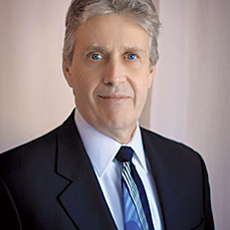
There are many metaphors for people in a profession who don’t pay the same attention to themselves and their families as those they serve – lawyers who have fools for clients, shoemakers with unshod children, physicians who should heal themselves.
So maybe I shouldn’t have been surprised when healthcare organizations, including hospitals, long-term care facilities, palliative care and hospice, asked me to talk with them as employers, not just caregivers. One leader arranged a series of meetings and purchased end-of-life planning toolkits for his managers saying, “We have to put our money where our mouth is. How can we encourage our patients to document their wishes when we haven’t?”
That makes sense to us. One hospice president said to me, “I would bet our employees have a lower rate of documenting their wishes than the general population. Somehow we think that working around death every day means it can’t sneak up on us. Pretty naïve, I know.”
It actually isn’t surprising when you think about it. It’s easy to think you don’t need to worry about EOL planning because you deal with it every day. That’s why we at Final Roadmap want to ask the tough question: Have you, a long-term care professional, made a plan for yourself and your loved ones? If you became unable to speak for yourself, do you have people and things in place to be sure things happen as you would direct?
As healthcare providers and leaders you know the healthcare system. It is a protocol-driven, complex mechanism of people, regulation and technology. If the individual is not in charge, speaking for themselves or through a capable surrogate, well-intentioned professionals are left to guess. We all know they prefer not to do that.
You are the only one who can take the guesswork out of decisions that may need to be made when you can’t speak for yourself. Don’t be lulled into a false sense of security that because you are healthy you don’t need to think about it. Something could happen in a blink of an eye that could change your health and your life.
The National Highway Traffic Safety Administration tells us that in the U.S. 250 people are injured in motor vehicle accidents every hour, in addition to the 90 that die each day. It can be assumed that none of these people saw their accidents coming. I wonder how many family members had to make unwanted decisions and how confident they felt in doing so. Accidents are not always preventable, but we can mitigate some of their consequences.
In addition to giving yourself and your family some peace of mind by planning for accidents and end-of-life, thinking through these issues will make you more comfortable in talking with your patients and residents. Using a guide like Final Roadmap will help you put into words what kind of medical care you wish to receive and if done properly, in many different circumstances.
Because of the gravity of this task, there is no better way to educate patients then to have gone through it yourself. Considering your own wishes enables you to discuss end of life planning with your patients with both knowledge and compassion.
We can make these issues better for everyone by bringing them into the open. Healthcare professionals bring unique and thoughtful insights to these conversations. Yours can be a very powerful voice once you acknowledge your own mortality and need to plan.
Steve Byrne is the co-founder of Final Roadmap, a guide and toolkit for end-of-life issues.



